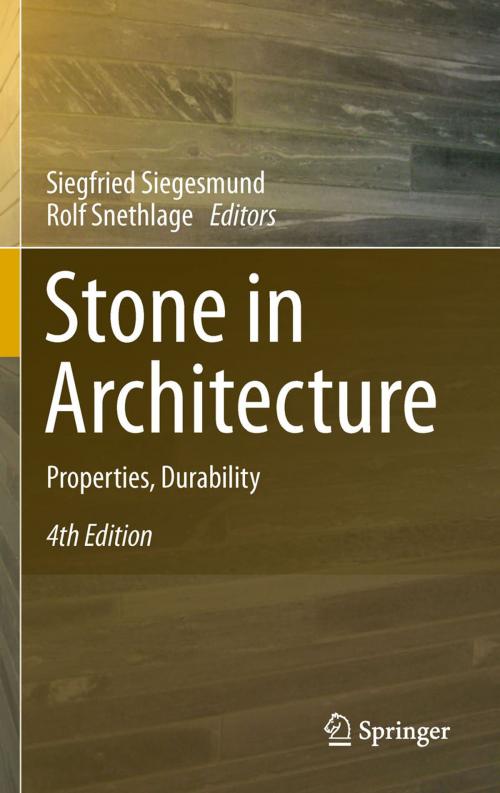Stone in Architecture
Properties, Durability
Nonfiction, Science & Nature, Science, Earth Sciences, Mineralogy, Technology, Construction & Construction Trades| Author: | ISBN: | 9783642144752 | |
| Publisher: | Springer Berlin Heidelberg | Publication: | January 25, 2011 |
| Imprint: | Springer | Language: | English |
| Author: | |
| ISBN: | 9783642144752 |
| Publisher: | Springer Berlin Heidelberg |
| Publication: | January 25, 2011 |
| Imprint: | Springer |
| Language: | English |
The weathering of historical buildings and, indeed, of monuments and sculptures of natural stone is a problem that has been encountered for hundreds of years. However, a dramatic increase in deterioration in the structure of our built heritage has been observed during the past century. To understand the complex interaction that the stone in a building suffers with its near environment (the building) and the macro environment (the local climate and atmospheric conditions) requires an interdisciplinary approach and the application of many disciplines. Climate change over the next 100 years is likely to have a range of direct and indirect impacts on many natural and physical environments, including the built environment.
The protection of our architectural heritage has both cultural and historical importance, as well as substantial economic and ecological value. Large sums of money are being spent world-wide on measures for the preservation of monuments and historical buildings. The past few decades has seen an unprecedented level of research activity in this area, the results of which are often difficult to access and are summarized in the new edition of STONE IN ARCHITECTURE.
The weathering of historical buildings and, indeed, of monuments and sculptures of natural stone is a problem that has been encountered for hundreds of years. However, a dramatic increase in deterioration in the structure of our built heritage has been observed during the past century. To understand the complex interaction that the stone in a building suffers with its near environment (the building) and the macro environment (the local climate and atmospheric conditions) requires an interdisciplinary approach and the application of many disciplines. Climate change over the next 100 years is likely to have a range of direct and indirect impacts on many natural and physical environments, including the built environment.
The protection of our architectural heritage has both cultural and historical importance, as well as substantial economic and ecological value. Large sums of money are being spent world-wide on measures for the preservation of monuments and historical buildings. The past few decades has seen an unprecedented level of research activity in this area, the results of which are often difficult to access and are summarized in the new edition of STONE IN ARCHITECTURE.















